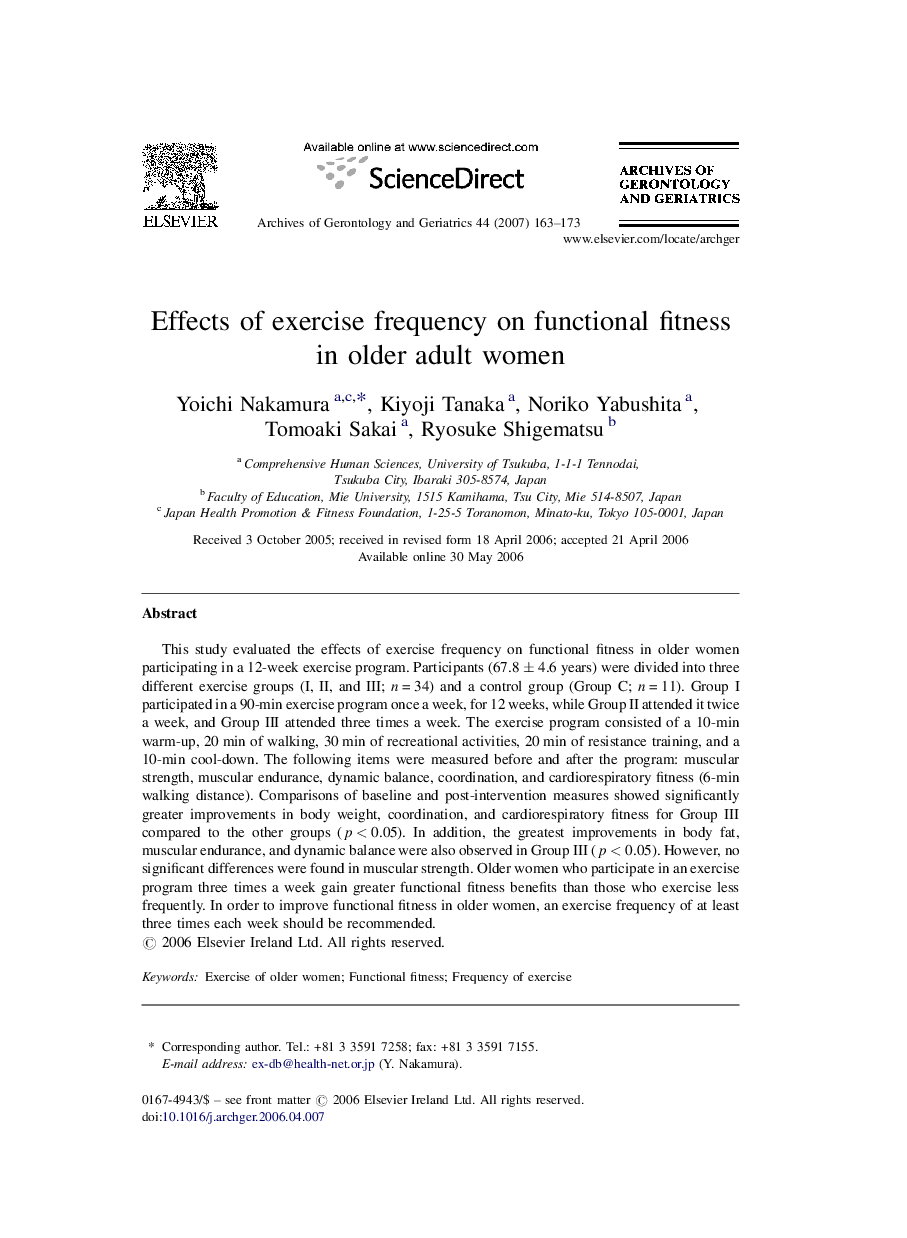| Article ID | Journal | Published Year | Pages | File Type |
|---|---|---|---|---|
| 1904114 | Archives of Gerontology and Geriatrics | 2007 | 11 Pages |
This study evaluated the effects of exercise frequency on functional fitness in older women participating in a 12-week exercise program. Participants (67.8 ± 4.6 years) were divided into three different exercise groups (I, II, and III; n = 34) and a control group (Group C; n = 11). Group I participated in a 90-min exercise program once a week, for 12 weeks, while Group II attended it twice a week, and Group III attended three times a week. The exercise program consisted of a 10-min warm-up, 20 min of walking, 30 min of recreational activities, 20 min of resistance training, and a 10-min cool-down. The following items were measured before and after the program: muscular strength, muscular endurance, dynamic balance, coordination, and cardiorespiratory fitness (6-min walking distance). Comparisons of baseline and post-intervention measures showed significantly greater improvements in body weight, coordination, and cardiorespiratory fitness for Group III compared to the other groups (p < 0.05). In addition, the greatest improvements in body fat, muscular endurance, and dynamic balance were also observed in Group III (p < 0.05). However, no significant differences were found in muscular strength. Older women who participate in an exercise program three times a week gain greater functional fitness benefits than those who exercise less frequently. In order to improve functional fitness in older women, an exercise frequency of at least three times each week should be recommended.
